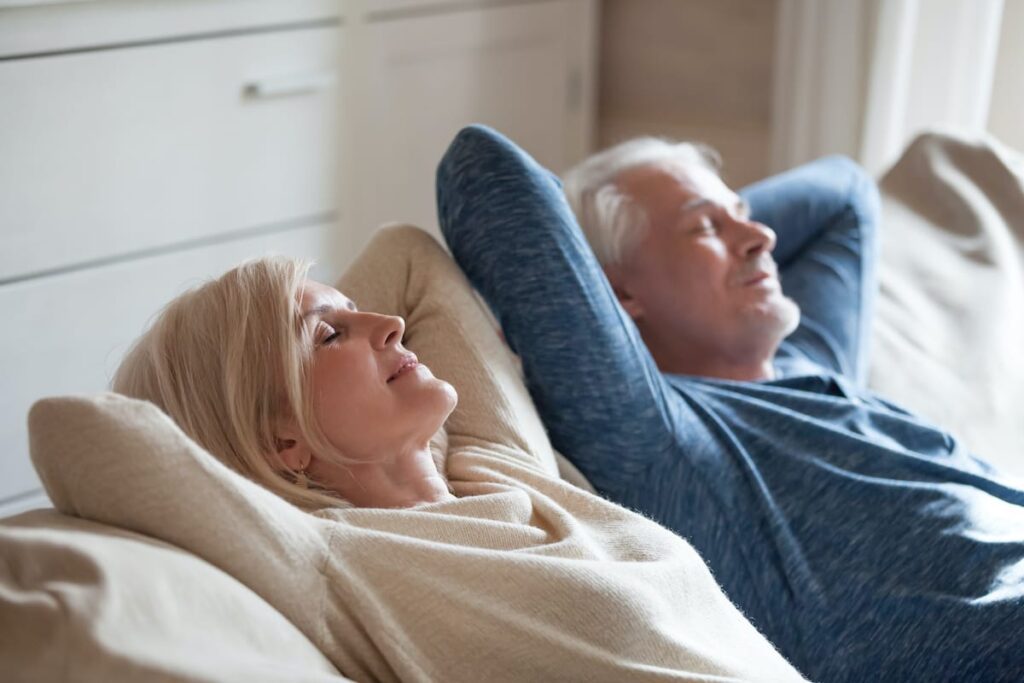
Snoring is not necessarily a problem unless it is disturbing the peace. At that point, the problem is that snoring is noisy and at most annoying. However, when the person who is sleeping is snoring very loudly there is cause for concern. The person may be subject to a sleep disorder called sleep apnea. A 2008 study from the Sleep Research Society, showed that there is a close correlation between sleep-breathing disorders (like sleep apnea) and mortality risk. If that is the case, then sleep apnea is definitely a silent killer!
The underlying problem in sleep apnea is throat muscle relaxation. When the muscles relax in the back of the throat, the airways are narrowed or even closed. Which results in the body attempting to reopen those airways so that the person can breathe normally. The brain may wake the person in order to clear the throat. Other times gasping, snorting, or even choking occurs. What distinguishes sleep apnea from normal obstructive sleep, is the fact that the person will stop breathing entirely, and that can last up to several minutes!
The trouble for seniors is that they could have sleep apnea and not know it. Luckily there are other ways to detect the silent killer other than a loud snore. Due to the body’s attempt at opening the airways again, the person will be left with physical side effects. The disruption of sleep can leave someone feeling groggy or tired after a full night of sleep. Fatigue is a symptom of people with sleep apnea, along with the occasional daytime sleepiness. Constant headaches are felt due to the lack of oxygen during sleep. These are a few of the most noticeable symptoms that can indicate that someone has recurring and life-threatening sleep apnea.
The only way to officially confirm a sleep disorder is to talk to a sleep specialist. The specialist will use an at-home test to evaluate breathing patterns or perform a Nocturnal Polysomnography. A Nocturnal Polysomnography is an in-depth evaluation of a patient, who is hooked up to equipment that monitors heart, lung, and brain activity, over one night’s sleep. From these tests, doctors can determine based on the severity of one’s sleep apnea and which treatment is best suited for the needs of the patients.
Sleep apnea will take away a senior’s ability to function normally during sleep and while awake. If left untreated, the senior is at a much higher risk for heart disease, diabetes, or stroke. Seniors will do themselves a great service if they take note of the loud snores that have been disturbing the peace around them because it might be why their own peace is being disturbed!
WellPath Partners is your senior resource referral guide. Follow us on ALL social media platforms and join us weekly for more content and public health discussions.
By: Jonathan Reza
Office Support Specialist at WellPath Partners
B.S. in Philosophy at University of Redlands
M.A. Candidate in Philosophy at California State University, Long Beach
